For my latest column in The Hill, I explored the European Union’s (EU) endlessly expanding push to regulate all facets of the modern data economy. That now includes a new effort to regulate artificial intelligence (AI) using the same sort of top-down, heavy-handed, bureaucratic compliance regime that has stifled digital innovation on the continent over the past quarter century.
The European Commission (EC) is advancing a new Artificial Intelligence Act, which proposes banning some AI technologies while classifying many others under a heavily controlled “high-risk” category. A new bureaucracy, the European Artificial Intelligence Board, will be tasked with enforcing a wide variety of new rules, including “prior conformity assessments,” which are like permission slips for algorithmic innovators. Steep fines are also part of the plan. There’s a lengthy list of covered sectors and technologies, with many others that could be added in coming years. It’s no wonder, then, that the measure has been labelled the measure “the mother of all AI laws” and analysts have argued it will further burden innovation and investment in Europe.
As I noted in my new column, the consensus about Europe’s future on the emerging technology front is dismal to put it mildly. The International Economy journal recently asked 11 experts from Europe and the U.S. where the EU currently stood in global tech competition. Responses were nearly unanimous and bluntly summarized by the symposium’s title: “The Biggest Loser.” Respondents said Europe is “lagging behind in the global tech race,” and “unlikely to become a global hub of innovation.” “The future will not be invented in Europe,” another analyst bluntly concluded.
That’s a grim assessment, but there is no doubt that European competitiveness is suffering today and that excessive regulation plays a fairly significant role in causing it. As I noted in my column, “the EU’s risk-averse culture and preference for paperwork compliance over entrepreneurial freedom” had serious consequences for continent-wide innovation. I note in my recent column how:
After the continent piled on layers of data restrictions beginning in the mid-1990s, innovation and investment suffered. Regulation grew more complex with the 2018 General Data Protection Regulation (GDPR), which further limits data collection and use. As a result of all the red tape, the EU came away from the digital revolution with “the complete absence of superstar companies.” There are no serious European versions of Microsoft, Google, Facebook, Apple or Amazon. Europe’s leading providers of digital technology services today are American-based companies.
Let’s take a look at a few numbers that illustrate what’s happened in Europe’s tech sector over the past quarter century. Here’s an old KPGM breakdown of market caps for public Internet companies over an important 20 year period, from 1995 to 2015, when the digital technology marketplace was taking shape. Besides the remarkable amount of churn over that period (with only Apple appearing on both lists), the other notable thing is the complete absence of any European companies in 2015.
Next, here’s a chart I constructed using CB Insights data for global unicorns ($billion valued companies) from 2010 up through early 2022. It shows how the U.S. dominates fully half the list with China having a 16% share, but all of the European Union’s firms equal just a 9 percent slice of the world’s share.
If you want to see a per capita breakdown of VC investment by country, here’s a handy Crunchbase News chart. While the U.S. is geographically much larger than Europe, a breakdown of VC funding on a per capita basis reveals that only Estonia ($915B) and Sweden ($700B) have startup investment on par with America ($808B). No other European country has even half as much per capita VC investment as the U.S., and most don’t even have a quarter as much.
As we enter the “age of AI,” what will the EU’s same regulatory model for mean for AI, machine learning, and robotics in Europe? We do have some early data on that, too. Here’s a breakdown of AI-related VC activity and AI unicorn in 2021 from the recent State of AI Report 2021, with European countries already trailing far behind:
Also, here’s some data on recent AI investment by region from the latest Stanford “AI Index Report 2022” which again highlights a gap that is only growing larger:
It’s important to listen to what actual AI innovators across the Atlantic have to say about the new EU regulatory efforts. Just last month, the UK-based Coalition for a Digital Economy (Coadec), an advocacy group for Britain’s technology-led startups, published a report entitled, “What do AI Startups Want from Regulation?” Coadec surveyed its members to gauge their feelings about the EU’s proposed approach to AI regulation, as well as the UK’s. 76% of those startups said that their business model would be either negatively affected or become infeasible if the UK were to echo the EU by making AI developers liable, and an equal percentage said they had varying concerns about whether it’s technically even feasible to make their datasets “free of errors,” as the EU looks set to demand. Respondents also said they feared that the new AI Act would be particularly burdensome to small and mid-size entrepreneurs because they cannot afford to deal with the costly compliance hassles like the larger competitors they face. This would end of being a replay of the burdens they faced from GDPR, which decimated small businesses. “The experience of GDPR demonstrated how unclear, complex and expensive regulations drove many startups out of business, and disproportionately impact startups that survived–GDPR compliance cost startups significantly more than it did the Tech Giants,” the Coadec report concluded.
At least those UK-based innovators might be in a slightly better position post-Brexit with the British government now looking to chart a different–and much less burdensome–governance approach for digital technologies. In fact, the UK government recently released a major policy document on “Establishing a Pro-Innovation Approach to Regulating AI,” which makes a concerted effort to distinguish its approach from the EU’s. “We will ask that regulators focus on high risk concerns rather than hypothetical or low risks associated with AI,” the report noted. “We want to encourage innovation and avoid placing unnecessary barriers in its way.” This is consistent with what the UK government has been saying on technology governance more generally. For example, in recent report advocating for Innovation Friendly Regulation, the UK government’s Regulatory Horizons Council argued that, when it comes to the regulation of emerging technologies like AI, “it is also necessary to consider the risk that the intervention itself poses.” “This would include the potential impact on benefits from a particular innovation that might be foregone; it would also include the potential creation of a ‘chilling effect’ on innovation more generally,” the Council concluded. Clearly, this approach to technology policy stands in stark contrast to the EU’s heavy-handed model. So, there is a chance that at least some innovators based in the UK can escape the EU’s regulatory hell.
What about AI innovators stuck on the European continent? What are they saying about the regulations they will soon face? The European DIGITAL SME Alliance, which is the largest network of small and medium sized enterprises (SMEs) in the European ICT sector, represents roughly 45,000 digital SMEs. In comments to the EC about the impact of the law, the Alliance highlighted how costly the AI Act’s conformity assessments and other regulations will be for smaller innovators. “This may put a burden on AI innovation” the Alliance argued, because smaller developers have limited financial and human resources of SMEs.” “[A] regulation that requires SMEs to make these significant investments, will likely push SMEs out of the market,” the group noted. “This is exactly the opposite of the intention to support a thriving and innovative AI ecosystem in Europe.” Moreover, “SMEs will not be able to pass on these costs to their customers in the final customer end pricing,” the Alliance correctly noted because, “[t[he market is global and highly competitive. Therefore, customers will choose cheaper solutions and Europe risks to be left behind in technology development and global competition.”
In March, the Alliance also hosted a forum on “The European AI Act and Digital SMEs,” which featured comments from some operators in this space. Some speakers were quite timid and you could sense that they might have feared pushing back too aggressively against the European Commission so as not to get on the bad side of regulators before the rules go into effect. But Mislav Malenica, Founder & CEO Mindsmiths didn’t pull any punches in his remarks. His company Mindsmiths is trying to build autonomous support systems in many different fields, but their ability to innovate and compete globally will be severely curtailed by the EU AI Act, he argued.
I usually don’t spend time transcribing people’s comments from events, but I went back and watched Malenica’s multiple times because his remarks are so powerful and I wanted to make sure others hear what he was saying. [Malenica’s opening comments during the event run from 42:29 to 49:34 of the video and then he has more to say during Q&A beginning at the 1:27:28 of the video.] Here’s a quick summary of a few of Malenica’s key points (listed chronologically):
- “I’m not sure we are doing everything we can do actually to create an environment that’s innovation friendly.”
- “we see a lot of uncertainty. We see fear.”
- “basically we won’t be able to get funding here.”
- while reading through the AI Act, he notes, “I don’t see start-ups being mentioned anywhere, and startups are the main vehicles of innovation.” […] “I find it very arrogant”
- if AI Act becomes law, “what we’ll do in Europe is we’ll create a new market and that’s the AI markets based on fear,” and in how to just build products that avoid the wrath of government or lawsuits.
- “we are really stifling innovation” and that means Europeans will have to import autonomous products from foreign companies instead of making them there.
Later, during in the Q&A period, Malenica notes how his first virtual currency startup had to use half it’s investment capital just dealing with regulatory compliance issues, and most venture capitalists wouldn’t get behind launching in Europe because of such legal hassles. He reflects upon what this mean for other innovators going forward as the EU prepares to expand their regulatory regime for AI sectors:
- “I don’t think we’re missing talent. That’s just a consequence” of all the regulation. “We are missing a sense that you have opportunities here. If you the opportunities here, then the talent will come, the funding will come, and so on because people see that they’ll be able to make money, they’ll be able to build companies, and so on.”
- “If we now take a look at the 10 biggest companies market capitalizations in the world, we’ll see that none of them comes actually from Europe” with U.S. tech companies dominating the list. “So, we missed that wave completely.” Why? “Because we didn’t inspire anyone to take action,” and that is about to happen for AI.
- “We need to decide if we are going to be a land of opportunities, or will we be just consumers of other people’s tech, the same we are right now” for digital software and services.
- “We’re already finding excuses for the loss” of the AI market, he argues.
Malenica’s comments are extraordinarily demoralizing if you care about innovation. Now, I’m an American and one way to look at this dismal situation is that, by hobbling its own startups and existing AI innovators, Europe is doing the U.S. another favor by essentially taking itself out of the running in next great global tech race. Europe’s actions may also mean that America gains many of their best and brightest if they come to the U.S. when looking to create the next great algorithmic service or application because they can’t do so in the EU. This is exactly what happened over the past few decades for Internet startups, Malenica noted.
But that’s dismal news in another sense. Europe is filled with brilliant innovators, highly-skilled talent, world-class educational institutions, and even many venture capitalists looking to invest in this arena. Unfortunately, the continent’s suffocating regulatory approach makes it nearly impossible for digital technology innovators to have a fighting chance. Through their heavy-handed policies, European officials have essentially declared their innovators “guilty until proven innocent.” And that means that Europeans and the rest of the world are being deprived of many important life-enriching and life-saving AI applications that those innovators could create. Technological innovation is not a zero-sum game that only one country can “win.” Innovation drives growth and prosperity and lifts all boats as its benefits spread throughout the world. When European innovators prosper, people all over the world prosper along with them.
Is there any chance the European Commission softens its stance toward emerging technologies and looks to adopt a more flexible governance approach that instead treats AI innovators as innocent until proven guilty? I think it is extremely unlikely that will happen because, as Malenica noted, European technology policy is too rooted in fear of disruption and extreme risk-aversion. EU officials are forgetting that the most important lesson from the history of technological innovation is there can be no progress without some risk-taking and corresponding disruption. My favorite quote about the relationship between risk-taking and human progress comes from Wilbur Wright who, along with his brother, helped pioneer human flight. “If you are looking for perfect safety,” Wright said, “you would do well to sit on a fence and watch the birds.” European policymakers are essentially forcing their best and brightest innovators to sit on the fence and watch the rest of the world fly right past them on the digital technology and AI front. The ramifications for the continent will be disastrous. Regardless, as I noted in concluding my recent Hill column, Europe’s approach to AI “shouldn’t be the model the U.S. follows if it hopes to maintain its early lead in AI and robotics. America should instead welcome European companies, workers and investors looking for a more hospitable place to launch bold new AI innovations.”
Alas, European officials appear ready to ignore the deleterious impact of their policies on innovation and competition and instead make regulation their leading export to the world. In fact, the European Commission will soon open a San Francisco office to work more closely with Silicon Valley companies affected by EU tech regulation. European leaders have basically surrendered on the idea of home-grown innovation and are now plowing all their energies into regulating the rest of the world’s largest digital technology companies, most of which are headquartered in the United States. It’s no wonder, then, that The Economist magazine concludes that, “Europe is the free-rider continent” that “has piggybacked on innovation from elsewhere, keeping up with rivals, not forging ahead.” Instead, “the cuddly form of capitalism embraced in Europe has markedly failed to create world-beating companies,” the magazine argues.
European officials want us to believe that they are somehow doing the world a favor by being its global tech regulator, when instead the are simply solidifying the power of the largest digital tech companies, who are the only ones with enough resources–mainly in the form of massive legal compliance teams–to live under the EU’s innovation-crushing regulations. Sadly, many US policymakers hate our own home-grown tech companies so much now, that they are willing to let this happen. In a better world, those American lawmakers would stand up to European officials looking to bully tech innovators and we would reject the innovation-killing recipe that the EU is cooking up for AI markets and expects the rest of the world to eat.
_______________
Additional Reading on AI & Robotics:
- Adam Thierer, “How Science Fiction Dystopianism Shapes the Debate over AI & Robotics,” Discourse, July 26, 2022.
- Adam Thierer, “Why is the US Following the EU’s Lead on Artificial Intelligence Regulation?” The Hill, July 21, 2022.
- Adam Thierer, “Algorithmic Auditing and AI Impact Assessments: The Need for Balance,” Medium, July 13, 2022.
- Adam Thierer, “What I Learned about the Power of AI at the Cleveland Clinic,” Medium, May 6, 2022.
- Adam Thierer, Governing Emerging Technology in an Age of Policy Fragmentation and Disequilibrium, American Enterprise Institute (April 2022).
- Adam Thierer, “How to Get the Future We Were Promised,” Discourse, January 18, 2022.
- Adam Thierer, “A Global Clash of Visions: The Future of AI Policy,” The Hill, May 4, 2021.
- Adam Thierer, “A Brief History of Soft Law in ICT Sectors: Four Case Studies,” Jurimetrics, Vol. 61 (Fall 2021): 79-119.
- Adam Thierer, “Artificial Intelligence Governance in the Obama–Trump Years,” IEEE Transactions on Technology and Society, Vol, 2, Issue 4 (2021).
- Adam Thierer, “The Worst Regulation Ever Proposed,” The Bridge, September 2019.
- Ryan Hagemann, Jennifer Huddleston Skees & Adam Thierer, “Soft Law for Hard Problems: The Governance of Emerging Technologies in an Uncertain Future,” Colorado Technology Law Journal, Vol. 17 (2018).
- Adam Thierer & Trace Mitchell, “No New Tech Bureaucracy,” Real Clear Policy, September 10, 2020.
- Adam Thierer, “OMB’s AI Guidance Embodies Wise Tech Governance,” Mercatus Center Public Comment, March 13, 2020.
- Adam Thierer, “Europe’s New AI Industrial Policy,” Medium, February 20, 2020.
- Adam Thierer, “Trump’s AI Framework & the Future of Emerging Tech Governance,” Medium, January 8, 2020.
- Adam Thierer, “Soft Law: The Reconciliation of Permissionless & Responsible Innovation,” Chapter 7 in Adam Thierer, Evasive Entrepreneurs & the Future of Governance (Washington, DC: Cato Institute, 2020): 183-240.
- Andrea O’Sullivan & Adam Thierer, “Counterpoint: Regulators Should Allow the Greatest Space for AI Innovation,” Communications of the ACM, Volume 61, Issue 12, (December 2018): 33-35.
- Adam Thierer, Andrea O’Sullivan & Raymond Russell, “Artificial Intelligence and Public Policy,” Mercatus Research (2017).
- Adam Thierer, “Shouldn’t the Robots Have Eaten All the Jobs at Amazon By Now?” Technology Liberation Front, July 26, 2017.
- Adam Thierer, “Are ‘Permissionless Innovation’ and ‘Responsible Innovation’ Compatible?” Technology Liberation Front, July 12, 2017.
- Adam Thierer, “The Growing AI Technopanic,” Medium, April 27, 2017.
- Adam Thierer, “The Day the Machines Took Over,” Medium, May 11, 2017.
- Adam Thierer, “When the Trial Lawyers Come for the Robot Cars,” Slate, June 10, 2016.
- Adam Thierer, “Learning by Doing,” the Process of Innovation & the Future of Employment,” Technology Liberation Front, September 25, 2015.
- Adam Thierer, “Problems with Precautionary Principle-Minded Tech Regulation & a Federal Robotics Commission,” Medium, September 22, 2014.
- Adam Thierer, “On the Line between Technology Ethics vs. Technology Policy,” Technology Liberation Front, August 1, 2013.
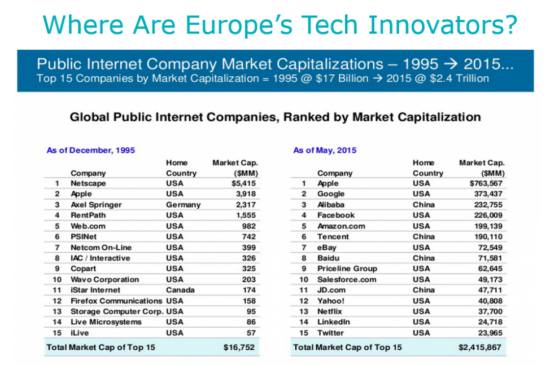
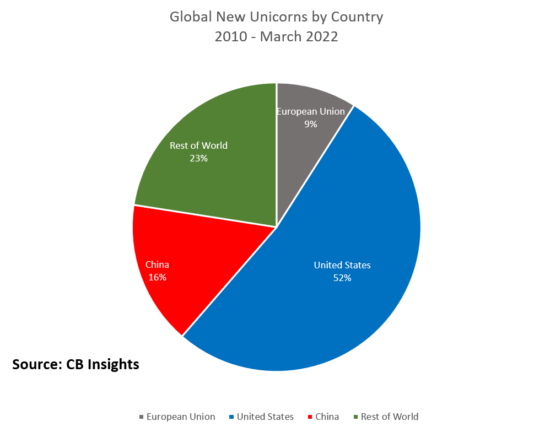
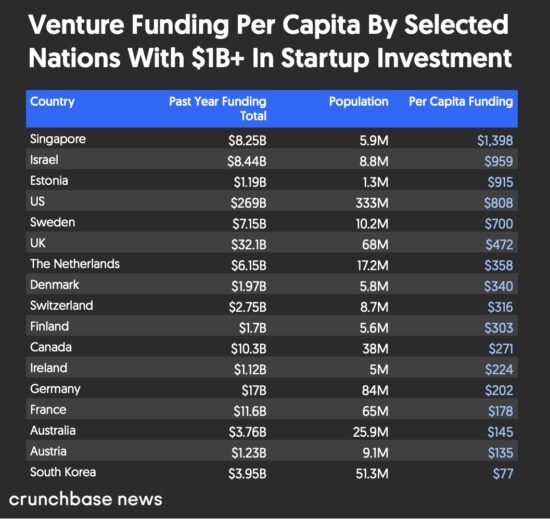
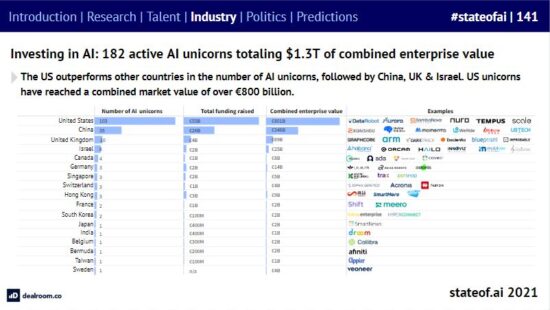
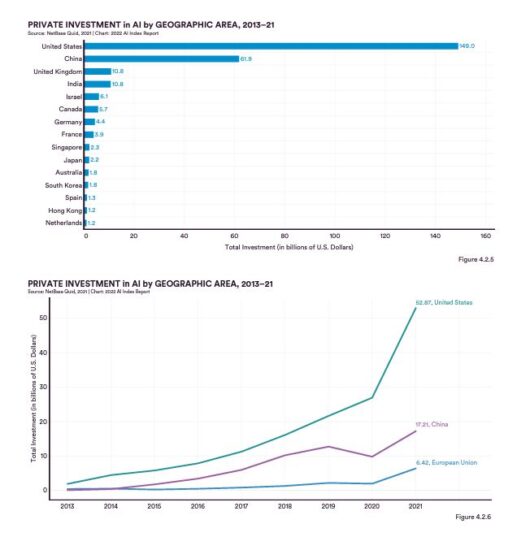

 The Technology Liberation Front is the tech policy blog dedicated to keeping politicians' hands off the 'net and everything else related to technology.
The Technology Liberation Front is the tech policy blog dedicated to keeping politicians' hands off the 'net and everything else related to technology.